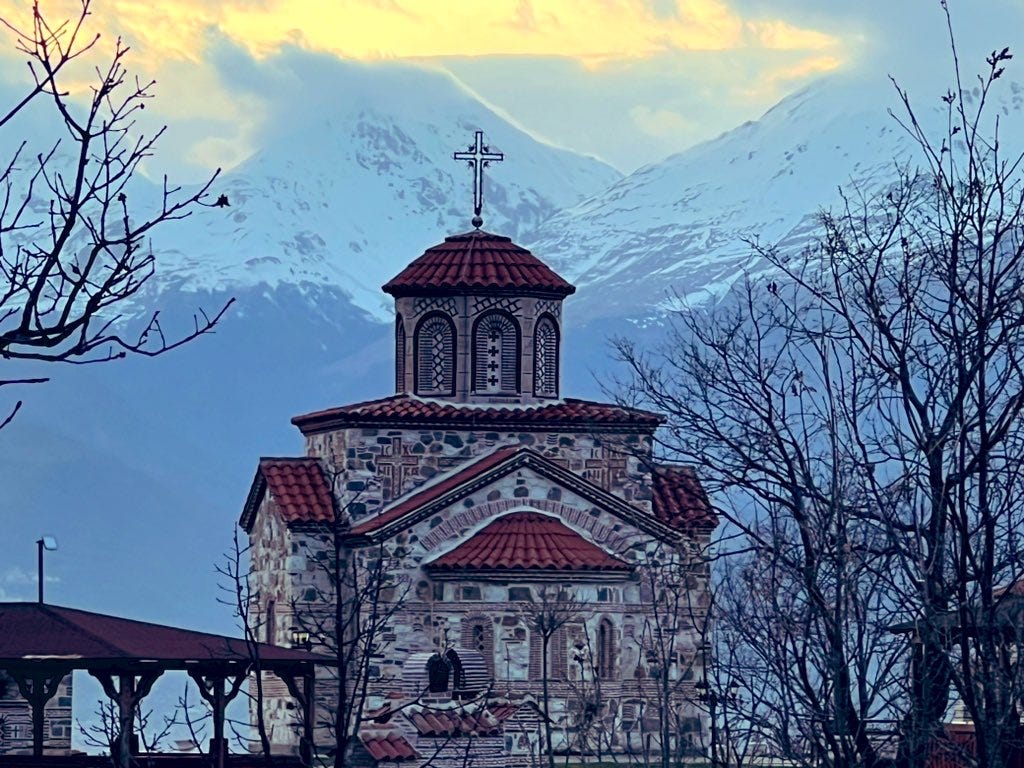Is the Macedonian Church sitting on two chairs?
Apologies for sending this brief a little late. I had an unexpected trip to the Balkans and my homeland. This is a photo I took of St. Ekaterina, a small church overlooking the Polog valley with the stunning Shar mountains in the background. It makes a nice introduction to the theme of this week’s brief.
Not in the mo…
Keep reading with a 7-day free trial
Subscribe to Divine Diplomacy to keep reading this post and get 7 days of free access to the full post archives.



